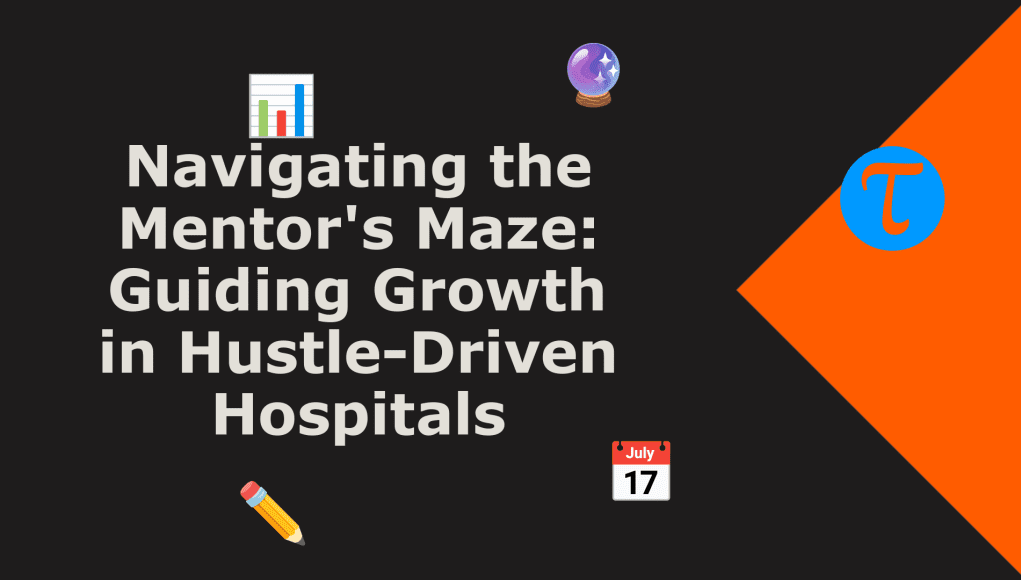Introduction: A Call to Care
The cacophony of a bustling hospital is both a testament to the dedication of health professionals and a challenge to the art of mentorship. As National Mentoring Month approaches, its an opportune moment to reflect on how we, as healthcare providers, can harness the potential of mentorship in environments defined by urgency and innovation. The theme of upskilling provides a lens through which we can examine how teaching and learning intertwine in the life-saving corridors of hospitals.
The Tempo of Transformation
In the modern hospital, every heartbeat counts. This urgency affects the rhythm of mentorship in profound ways. Health professionals must perpetually balance the demands of immediate patient care with the long-term growth of their mentees. Yet, in this whirlwind, lies an unparalleled opportunity: the chance to mold burgeoning talent through real-world trials.
Challenges That Shape Us
Mentoring in a fast-paced hospital environment doesn’t come without its hurdles. The dynamic nature of hospital work means that plans often have to shift, and learning opportunities may appear and vanish in what seems like an instant. This unpredictable landscape requires mentors to be adept at seizing teachable moments as they arise.
Time Constraints
With patient rounds, administrative duties, and emergencies, time is a scarce resource. But within these constraints lies a challenge that can foster creativity in mentorship. The solution? Short, impactful interactions that focus on quality over quantity. The art of asking guiding questions that provoke thought rather than delivering didactic lectures can be transformative.
Emotional Toll
Hospitals can be emotionally intense environments. For a mentee witnessing life and death decisions, the support of a mentor can serve as a crucial anchor. Providing a space for reflection and emotional processing is just as important as clinical teaching. It’s about nurturing the whole person, not just the professional.
Harnessing Technology for Growth
Technology offers a unique advantage in bridging the gap created by time and emotional constraints. Virtual reality simulations, telemedicine shadowing, and e-learning modules can complement traditional mentorship. These tools provide flexible, accessible avenues for upskilling, helping mentees refine their competencies at their own pace.
Leading by Example
True leadership in mentorship requires vulnerability and resilience. Sharing personal stories of past failures and triumphs can demystify the path to proficiency and instill courage in mentees. Leading by example, mentors can demonstrate adaptability and a commitment to lifelong learningvalues that are crucial in the ever-evolving field of healthcare.
Conclusion: A Symphony of Support
As National Mentoring Month draws near, let us celebrate the mentors who light the way in the frenetic yet fulfilling world of health care. By tackling the challenges of mentoring head-on, we dont just enhance individual competencies; we cultivate a culture of continuous improvement across the profession. Let us acknowledge the symphony of support that mentorship offers in the medical fieldan enduring legacy that resonates through every patient interaction.




























